What treatment
10+ Highly Rated Maxillary Cancer Clinics in Mexico
Reach Out to These Certified Maxillary Cancer Clinics List in Mexico Loved by Patients!
Alternative Cancer Treatment by ITC - Immunity Therapy Center
Overview
Immunity Therapy Center is one of the best cancer treatment centers in Tijuana, Mexico, offering innovative approaches and compassionate care to enhance your path to healing.
Read more details
Limphocare by Limphocite - Immunotherapy for Cancer in Mexico
Overview
Limphocare offers advanced immunotherapy for cancer in Mexico and autoimmune conditions, providing holistic, effective care with fewer side effects.
Read more details
Aesthetic and Oncologic Face, Head and Neck Clinic and OR
Overview
Discover AOFHN Clinic and OR in Tijuana, Mexico, specializing in plastic surgery & oncology. Services include rhinoplasty, facelift, Botox & cancer treatment.
Read more detailsCentro Medico de Especialidades de Ciudad Juarez
Overview
Centro Medico de Especialidades in Ciudad Juarez, Mexico offers expert care in Plastic Surgery, General Surgery, Orthopedics, Internal Medicine, and Urology.
Read more detailsDiscover your treatment options with a free, no-obligation quote!
Get your quote now!Northeastern Institute of Oncology
Overview
Northeastern Institute of Oncology, located in Nuevo León, Mexico, is a modern medical facility focused on providing customized treatment programs for each individual, combining integrated treatment options and the latest technological advances. Patients coming here benefit from top medical care, highly qualified and experienced medical staff and highly successful medical procedures.
Read more detailsProctologic Center
Overview
Proctologic Center, located in Tijuana, Mexico is a modern center for proctology and colorectal treatments. Read more about the center and its treatment procedure.
Read more detailsBaja Integrative & Health Center
Overview
Discover top cancer care at Tijuana's Baja Integrative & Health Center. Personalized treatments for hope and healing. Your journey to recovery starts here.
Read more detailsDr. Juan Manuel Valadez | Gynecologist-Oncologist
Overview
Dr. Juan Manuel Valadez is a renowned Gynecologist-Oncologist offering his services in Cancun, Mexico. When he is not having a consultation at Cancun Oncology Center, a comprehensive cancer center in Cancun, Doctor Juan Manuel works as the Service Chief in the Gynecology and Oncological Gynecology Department of the Secretariat of Health in Playa del Carmen.
Read more detailsDiscover your treatment options with a free, no-obligation quote!
Get your quote now!Advanced Medical Group
Advanced Medical Group offers alternative treatments including ozone therapy, chemotherapy, and chelation therapy in Ciudad Juarez, Mexico.
Alianza Medica Global | MCMX
Alianza Médica Mundial, una organización para turismo de salud y bienestar, combina la atención médica asequible, con opciones de viajes exóticos en México.
Almater Hospital
We have an ever-growing commitment to serve patients with affordable medical care... we continue to reinforce better personnel, more advanced technology and superior facilities to best responds to the medical needs of the people.
Centro M
We are a private, proudly Mexican organization, especialized in the provision of high-quality health services. Our center opened its doors in May 2004 in Guadalajara with its Outpatient Surgery Center. The Specialties Hospital inaugurated in March 2006, this building is the final part of a project that seeks to offer the most exclusive health-service options in the region.
Cmcells, Centro Medico Celular, (Stem Cells Medical Center)
Stem Cell Treatment in Juarez and Chihuahua Mexico by Cmcells Centro Médico Celular can provide you best Stem Cell therapy using the latest technology. As one of the Top Stem Cell clinics in Chihuahua, you will get the best service for regenerative medicine for your loved ones.
CYGNUS
Cygnus clinic is in constant training and development of technological advances applied to medicine in the quest to provide the perfect service to customers. The specialized group is comprised of medical professionals concerned about providing the best care for their health and proper recovery.
Galenia Hospital
Hospital Galenia, located in Cancun, Mexico, is a modern facility with latest technological infrastructure, advanced medical equipment, and highly educated and accredited medical specialists. The experienced physicians have been trained in some of the best medical schools and hospitals in the world.
Holistic Bio Spa
Holistic Bio Spa, located in Puerto Vallarta, Mexico, is a clinic specialized in holistic, integrative and functional medicine for cancer, Lyme Disease, Stem Cell, Bio-identical Hormones.
Hospital de la Familia | Spanish Patient Center
Un hospital donde podrá disfrutar de las instalaciones y servicios de calidad juntos, y donde se puede encontrar la disposición y calidez que nos permiten llevar a cabo completamente por su bienestar máximo, así como, el de su familia durante su estadía en el hospital. Experimente Cirugía Estética, Cirugía Bariátrica y Cirugía Ortopedia Asequibles en México.
Hospital Sharp Mazatlan
Sharp Hospital, located in beautiful Mazatlan, where blue skies and warm aqua waters of the Pacific meet in a serene, getaway-from-it-all environment has served the needs of local & overseas patients... offering obesity, orthopedics, infertility, heart surgeries...
Oasis of Hope Hospital
Providing alternative & integrative cancer treatment using a multi disciplinary approach that meets the physical, emotional, & spiritual needs of the patient.
Regenerative Medicine Institute
Regenerative Medicine Institute is located in Tijuana, Mexico and offers a wide range of affordable, top notch medical services, such as immunotherapy, stem cell therapy and cancer therapy. With a renowned team of dedicated medical specialists, the medical center welcomes both local and international patients.
Which are the best Maxillary Cancer clinics in Mexico?
For exceptional Maxillary Cancer care in Mexico, consider clinics with strong patient recommendations and specialized oncology programs. Top options from our directory include Alternative Cancer Treatment by ITC in Tijuana, Centro Medico de Especialidades de Ciudad Juarez, Aesthetic and Oncologic Face, Head and Neck Clinic and OR in Tijuana, Baja Integrative & Health Center also in Tijuana, and the Northeastern Institute of Oncology in Monterrey. These facilities are recognized for their focused care and patient satisfaction.
When seeking the "best" clinic for a specialized procedure like Maxillary Cancer treatment, it's crucial to look beyond general ratings and focus on specific expertise. The clinics mentioned above have garnered positive patient feedback and offer dedicated oncology services. Here's a breakdown of what makes them stand out:
- Alternative Cancer Treatment by ITC - Immunity Therapy Center (Tijuana): Known for alternative and integrative cancer treatments, with 100% patient recommendation based on 5 reviews. They focus on boosting the body's natural defenses.
- Centro Medico de Especialidades de Ciudad Juarez (Ciudad Juarez): A multi-specialty center with a strong oncology department, boasting 100% patient recommendation from 7 reviews, indicating high trust and quality care.
- Aesthetic and Oncologic Face, Head and Neck Clinic and OR (Tijuana): Specializes in head and neck oncology, including maxillary cancer, and also holds a 100% patient recommendation from its reviews. Their dual focus ensures comprehensive reconstructive capabilities.
- Baja Integrative & Health Center (Tijuana): Offers integrative cancer care with personalized treatment plans. Patients highly recommend this center, evidenced by their 100% patient recommendation from 2 reviews.
- Northeastern Institute of Oncology (Monterrey): A dedicated oncology institute providing comprehensive cancer care, with a 100% patient recommendation from its reviews, highlighting their commitment to patient outcomes.
These clinics are highly regarded for their patient-centered approach and commitment to specialized maxillary cancer treatment, often incorporating advanced therapies and supportive care. Always verify the latest accreditations and speak directly with the clinics to understand their specific protocols for your individual case.
How do I choose a Maxillary Cancer Clinic in Mexico?
Choosing the right Maxillary Cancer clinic in Mexico involves verifying accreditations, assessing the expertise of their multidisciplinary oncology team, and confirming they have advanced diagnostic and treatment technologies tailored for complex head and neck cancers. Look for a facility experienced in both surgical removal and post-operative reconstruction to ensure comprehensive care.
When you're making such a critical healthcare decision, it’s important to dig deeper than just a clinic's general reputation. Focus on specific factors that point to high-quality care for this specialized type of cancer.
- Specialized Oncology Teams: Ensure the clinic has a dedicated head and neck cancer team, including maxillofacial surgeons, radiation oncologists, medical oncologists, and reconstructive surgeons. This integrated approach is vital for comprehensive treatment.
- Advanced Technology: Inquire about their diagnostic capabilities (e.g., PET/CT scans for accurate staging) and treatment modalities (e.g., advanced radiation therapies like IMRT) for precise tumor targeting.
- Experience with Complex Cases: Maxillary cancer often requires intricate surgery and reconstruction. Look for clinics that regularly handle complex head and neck oncology cases, indicating greater expertise and refined techniques.
- Patient-Centric Approach: A good clinic will prioritize your overall well-being, offering supportive care services like nutritional counseling, psychological support, and rehabilitation therapy from the outset.
What accreditations should I look for in a Mexican Maxillary Cancer center?
For a Maxillary Cancer center in Mexico, prioritize clinics with international accreditations like Joint Commission International (JCI) or national certification from Mexico's General Health Council (Consejo de Salubridad General). These credentials assure rigorous standards for patient safety, treatment quality, and operational excellence, especially crucial for specialized oncology care.
Accreditations aren't just fancy badges; they're a testament to a clinic's commitment to maintaining the highest possible standards of care. They offer an external, unbiased validation of a facility's quality and safety protocols.
- Joint Commission International (JCI): This is globally recognized as a gold standard in healthcare. A JCI-accredited facility undergoes stringent evaluations across all aspects of patient care, from infection control to surgical safety and staff competency.
- Consejo de Salubridad General (CSG): Mexico's national accrediting body sets comprehensive standards for hospitals and clinics. Certification from CSG ensures compliance with federal healthcare regulations and quality benchmarks specific to the Mexican healthcare system.
- ISO Certifications (e.g., ISO 9001): While not specific to medical care, an ISO 9001 certification indicates that the clinic has robust quality management systems in place. This can reflect efficient processes and a commitment to continuous improvement, which benefits the patient experience.
How do Mexican clinics handle post-surgery reconstructive care for maxillary cancer?
Leading Mexican clinics approach post-surgery reconstruction for maxillary cancer with a dedicated, integrated team of plastic and reconstructive surgeons. They often perform immediate or delayed reconstruction using advanced techniques like microvascular free tissue transfer and custom dental prosthetics. The goal is to restore facial function, appearance, and quality of life for patients.
Reconstruction after maxillary cancer surgery (maxillectomy) is a crucial component of the overall treatment, significantly impacting a patient's ability to eat, speak, and their facial aesthetics. Top clinics in Mexico plan for this from the initial diagnostic stages.
- Collaborative Surgical Planning: Oncology surgeons and reconstructive surgeons work hand-in-hand to plan the tumor removal to maximize cancer control while preserving as much tissue as possible for reconstruction.
- Advanced Reconstructive Techniques: Many centers employ microvascular free flap surgery, transferring bone, skin, or muscle from other body areas (like the fibula or radial forearm) to precisely reconstruct the resected maxillary area.
- Prosthodontic Expertise: Specialists in dental prosthetics (prosthodontists) are often part of the team, designing custom obturators or other devices to close palate gaps, which aids significantly in speaking and swallowing functions.
- Comprehensive Rehabilitation: Post-operative care includes essential speech and swallow therapy, along with psychological support, to help patients adapt to changes and regain optimal function.
What kind of diagnostic imaging is available at top Maxillary Cancer clinics in Mexico?
Top Maxillary Cancer clinics in Mexico offer a complete range of advanced diagnostic imaging critical for accurate staging and treatment planning. This includes high-resolution Computed Tomography (CT) scans for bone detail, Magnetic Resonance Imaging (MRI) for soft tissue assessment, and Positron Emission Tomography (PET/CT) scans to detect cancer spread throughout the body.
Accurate staging is the cornerstone of an effective Maxillary Cancer treatment plan. The sophistication of a clinic's imaging technology directly influences your oncology team's ability to make informed decisions for your care. When considering a clinic, ask about the availability and capabilities of these key technologies:
- CT Scans (Computed Tomography): Essential for visualizing bone involvement within the maxilla and assessing the extent of the tumor. Modern clinics should utilize multi-detector CT scanners for high-definition 3D imaging.
- MRI (Magnetic Resonance Imaging): Superior for detailing soft tissue invasion, such as tumor spread into adjacent nerves, muscles, or intracranial structures. This helps define surgical margins and radiation fields.
- PET/CT Scans: A powerful hybrid imaging tool combining anatomical clarity from CT with metabolic activity data from PET. It is invaluable for detecting primary tumor activity, lymph node metastasis, and distant spread of cancer cells, providing a comprehensive view of disease extent.
- Biopsy Guided by Imaging: Advanced imaging also guides precise biopsy procedures, ensuring accurate tissue samples for pathological diagnosis, which dictates the specific cancer type and aggression.
Do Maxillary Cancer clinics in Mexico accept US health insurance?
Generally, Maxillary Cancer clinics in Mexico do not directly bill US health insurance plans. However, many reputable facilities are accustomed to working with international patients and can provide detailed documentation for you to submit for reimbursement. It's crucial to confirm coverage specifics with your US insurer before traveling and discuss reimbursement procedures directly with the Mexican clinic.
Navigating international insurance for medical care requires proactive communication and careful planning. It's important not to assume your policy will function the same way it would in your home country.
- Contact Your Insurance Provider First: Always begin by calling your US health insurance company. Ask specifically about their policies regarding "out-of-network" and "overseas" or "international" healthcare services, particularly for specialized cancer treatments. Some PPO plans may offer partial coverage.
- Obtain a "Reimbursement Packet" from the Clinic: Experienced Mexican clinics that cater to medical tourists will usually have a process for providing comprehensive, itemized bills, medical reports, and treatment summaries in English. These documents are essential for your reimbursement claim.
- Consider Travel Medical Insurance: For additional peace of mind and potential coverage for unexpected medical needs abroad, explore purchasing a separate travel medical insurance policy. Be sure to understand its limitations, especially concerning pre-existing conditions like cancer.
- Pre-Authorization: In some cases, your US insurer might require pre-authorization for specific procedures, even if performed internationally. Clarify this with your insurer well in advance.
What support services do Mexican Maxillary Cancer clinics offer for international patients?
Mexican Maxillary Cancer clinics experienced with international patients typically provide extensive support to streamline the treatment journey. This includes dedicated international patient coordinators, assistance with travel logistics (like lodging and airport transfers), professional language interpretation, and help with medical record transfers and visa requirements, ensuring a smooth and supportive experience from start to finish.
Traveling for specialized medical care can be daunting, so the availability of robust support services is a significant factor when choosing a clinic. A facility that invests in a comprehensive international patient department demonstrates a strong commitment to your overall well-being and convenience.
- Personalized International Patient Coordinator: This individual serves as your primary point of contact, guiding you through every step, from initial inquiry to post-treatment follow-up. They help schedule appointments, coordinate between medical departments, and address non-medical concerns.
- Travel and Accommodation Assistance: Many clinics have established partnerships with nearby hotels or long-term stay apartments, often providing discounted rates. They can also arrange airport pick-up and ground transportation to and from your appointments.
- Language and Cultural Support: While many medical professionals in leading Mexican clinics speak English, professional medical interpreters are typically available to ensure clear and accurate communication during critical consultations and throughout your stay.
- Visa and Documentation Help: The international patient office can offer guidance on obtaining necessary travel documents and ensure all medical records are correctly transferred and translated for seamless care.
- Financial Guidance: They provide transparent cost estimates, explain payment options, and help gather documentation required for potential insurance reimbursement.
How are multidisciplinary tumor boards used in Mexican cancer centers for Maxillary Cancer?
In leading Mexican cancer centers, multidisciplinary tumor boards are standard practice for complex cases like Maxillary Cancer. These boards convene a diverse team of specialists—surgeons, oncologists, radiologists, and pathologists—to collectively review each patient's case. This collaborative approach ensures the development of a comprehensive, highly individualized, and optimal treatment strategy.
The utilization of a tumor board is a hallmark of an advanced and high-quality cancer program. It signifies that your unique case benefits from the collective wisdom and specialized perspectives of multiple experts, rather than being determined by a single physician.
- Collective Expertise: A team comprising head and neck surgeons, medical oncologists, radiation oncologists, diagnostic radiologists, and specialized pathologists meticulously examine your diagnostic images, biopsy results, and entire medical history.
- Personalized Treatment Planning: The board thoroughly discusses all available treatment modalities—including surgery, radiation therapy, chemotherapy, and targeted therapies. They then strategize the most effective sequence and combination of treatments tailored to your specific cancer stage, tumor characteristics, and overall health.
- Enhanced Accuracy and Outcomes: This collaborative review process minimizes the risk of overlooking critical details, leads to more accurate diagnoses, and has been shown to improve treatment efficacy and patient outcomes for complex cancers.
- Comprehensive Care Approach: Beyond the primary treatment, the tumor board also considers aspects such as reconstructive options, rehabilitation needs, and supportive care measures to ensure a holistic treatment plan.
What are the communication protocols with my home doctor from a Mexican Maxillary Cancer clinic?
Reputable Mexican Maxillary Cancer clinics prioritize seamless communication with your home doctor to ensure continuous care. They provide comprehensive medical records, detailed treatment summaries, and all diagnostic images in English. The international patient department often facilitates direct calls or secure messaging between your Mexican oncology team and your primary physician or local oncologist, ensuring they are fully informed about your treatment.
Ensuring a smooth transition of care when you return home is critical for your long-term recovery and well-being. A proficient Mexican clinic will have clear procedures in place to support this vital connection with your local healthcare providers.
- Thorough Medical Record Transfer: Before your arrival, the clinic will typically request your past medical history. Upon discharge, they will furnish you with a complete and organized set of all treatment records, including surgical reports, pathology findings, radiation therapy summaries, and medication lists, all translated into English.
- Detailed Discharge Summary: You will receive a comprehensive discharge summary outlining the entire course of treatment, recommendations for ongoing medications, potential side effects to monitor, and specific guidelines for your follow-up care with local doctors.
- Direct Doctor-to-Doctor Consultation: Many top clinics offer the option for your Mexican oncology specialist to communicate directly with your home physician. An international patient coordinator can help arrange these calls or secure virtual consultations to discuss your treatment, progress, and future care plan, ensuring your local doctor is completely briefed.
- Remote Support and Follow-Up: Some clinics may offer remote follow-up options, such as telehealth check-ins, or provide guidance on connecting with integrative medicine practitioners in your home country who can continue your supportive care.
How do I compare success rates of different Maxillary Cancer clinics in Mexico?
When comparing success rates for Maxillary Cancer clinics in Mexico, look beyond general oncology statistics. Request data specific to head and neck cancers, focusing on 5-year survival rates and recurrence rates for similar stages. Inquire about the clinic's annual patient volume for maxillary cancer, as higher volumes often indicate specialized expertise and potentially better outcomes. Also, consider patient testimonials and data on functional outcomes like speech and swallowing.
"Success" in cancer treatment is a nuanced concept, encompassing not only survival but also quality of life. A thorough comparison requires a more in-depth inquiry than just looking at overall success percentages.
- Cancer-Specific Outcome Data: Ask for specific 5-year survival rates for squamous cell carcinoma of the maxilla (the most common type) broken down by cancer stage. General cancer statistics are less useful for highly specialized conditions.
- Clinic Volume and Experience: Inquire about the number of maxillectomies or complex head and neck cancer surgeries the clinic and its surgeons perform annually. High-volume centers often demonstrate greater expertise and refined surgical techniques, which can lead to improved results.
- Functional Outcomes: Beyond survival, consider how the treatment impacts quality of life. Ask if the clinic tracks outcomes related to speech function, swallowing ability, cosmetic results from reconstruction, and long-term dental rehabilitation. This information is crucial for understanding the holistic success of treatment.
- Recurrence Rates: Request data on local and regional recurrence rates for maxillary cancer cases treated at the clinic. Lower recurrence rates suggest more effective initial treatment and follow-up.
- Patient Testimonials and Case Studies: Seek out detailed patient experiences or case studies, particularly from individuals who underwent similar maxillary cancer treatments, to gain insight into real-world outcomes and patient satisfaction.
What follow-up care plans do Mexican clinics offer after Maxillary Cancer treatment?
Top Mexican Maxillary Cancer clinics provide comprehensive, personalized follow-up care plans before you return home. These plans typically detail a schedule for surveillance imaging (CT, MRI, PET scans), recommendations for ongoing care with your local oncologist, and guidelines for essential rehabilitation services such as speech therapy and dental care. All necessary medical records are provided to ensure seamless continuity of care.
Effective follow-up is paramount for long-term recovery and early detection of any potential recurrence after Maxillary Cancer treatment. A leading Mexican clinic will ensure you are well-prepared for your post-treatment journey.
- Detailed Surveillance Schedule: The plan outlines a precise timeline for future check-ups, diagnostic imaging (e.g., CT, MRI, or PET scans), and endoscopic examinations to monitor your recovery and detect any changes early. This schedule is typically more frequent in the initial years post-treatment.
- Coordination with Home Healthcare Providers: The follow-up plan is designed for implementation by your local medical team. The clinic provides clear, written instructions for your primary care physician and local oncologist regarding specific parameters to monitor, tests to order, and symptoms requiring immediate attention.
- Rehabilitation and Supportive Care Recommendations: Essential rehabilitation services, such as speech and swallow therapy, dental prosthetic adjustments, and nutritional counseling, are included. The plan will suggest timelines and resources for continued therapy to regain optimal function and quality of life.
- Emergency Contact and Remote Consultation: You will receive clear contact information for your Mexican oncology team, allowing for remote consultations if questions or concerns arise after you return home. This ensures ongoing access to expert advice.
- Complete Medical Documentation: A full set of your medical records, including pathology reports, surgical notes, radiation dosimetry, and discharge summaries, all in English, will be provided to facilitate integrated care with your home doctors.
How PlacidWay helps individuals access Maxillary Cancer treatment in Mexico?
- PlacidWay provides detailed, up-to-date information about Maxillary Cancer, including the benefits, risks, and expected outcomes of various treatment options available at top Mexican facilities. We empower you with the knowledge needed to understand your medical journey.
- We help you compare treatment packages from different clinics, ensuring you find affordable options without compromising on the quality of care. Our platform offers transparency, allowing you to see what is included in each package.
- PlacidWay connects you with a network of trusted, accredited clinics and highly qualified medical professionals specializing in Maxillary Cancer in Mexico. We vet our partners to ensure they meet international standards of excellence and safety.
- We offer personalized, one-on-one consultations to help you make informed decisions. Our case managers listen to your specific needs, answer your questions, and guide you toward the clinic and treatment plan that is right for you.
- Our commitment to you continues even after your treatment. PlacidWay assists with arranging follow-up care and recovery support, ensuring a seamless transition back home and a smooth path to long-term health.
Ready to get Maxillary Cancer treatment in Mexico? Contact us today for a personalized consultation.












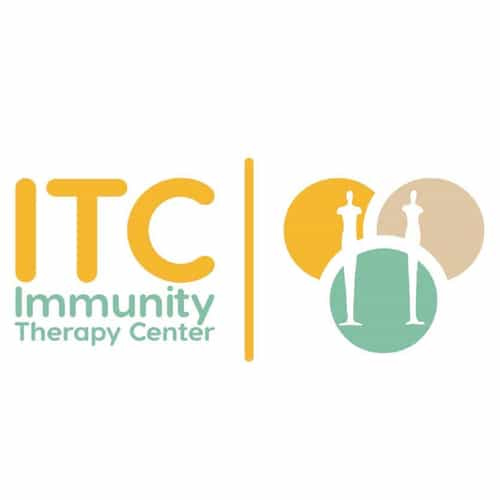
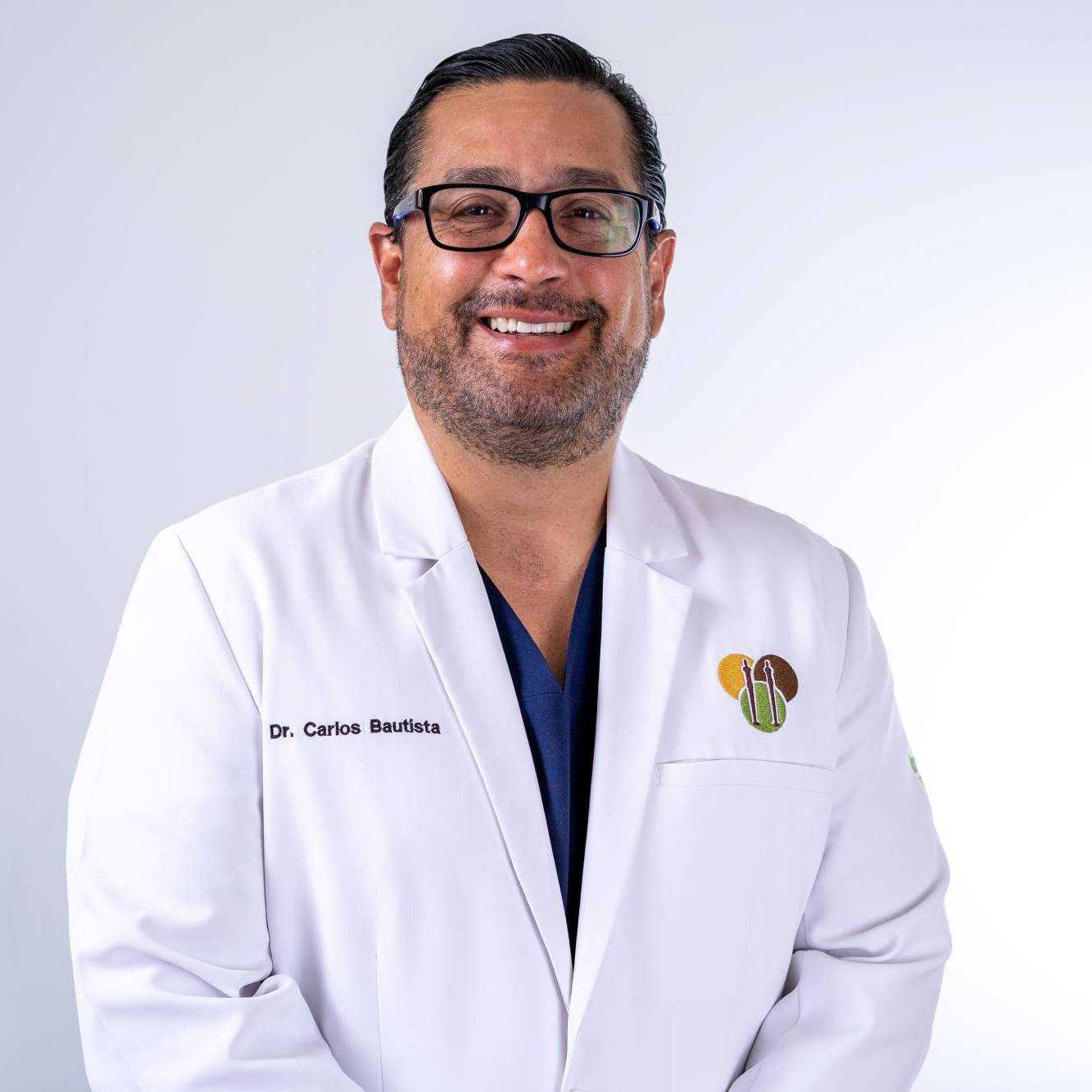

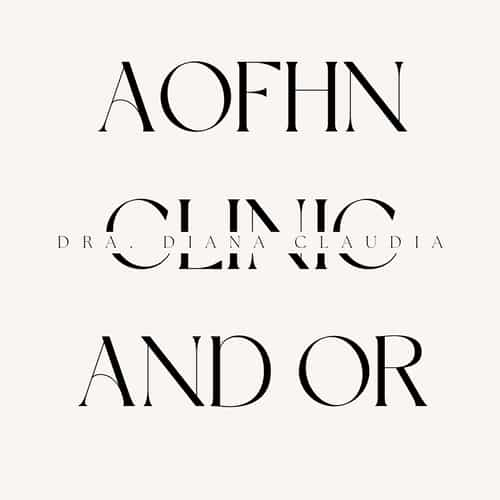
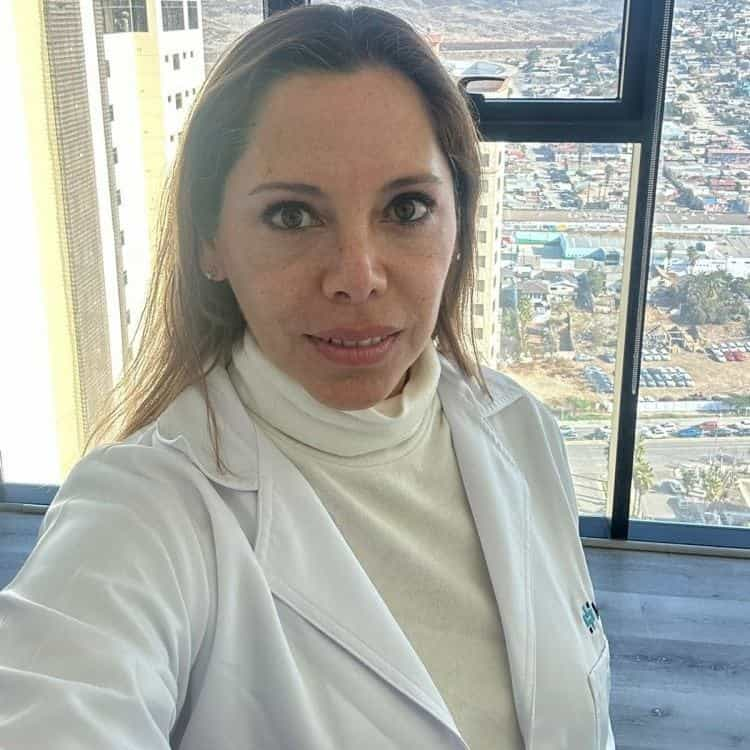
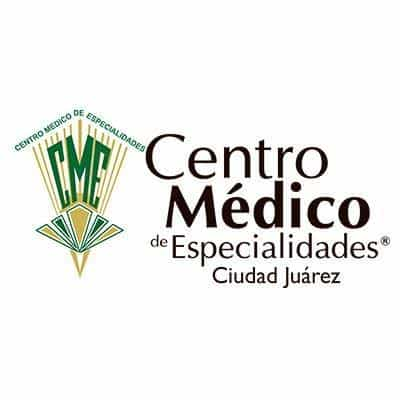



.png)
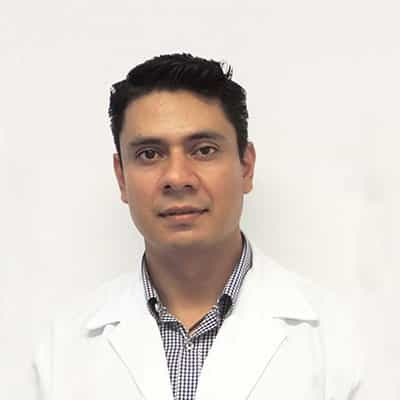








.png)
.png)

This was my husbands 5th trip to ITC. He goes annually for check-ups and to get an "immune boost"! He is always treated like family and gets quality care. We are happy with all aspects of ITC but above all we are happy with the results of his treatments!
Read More